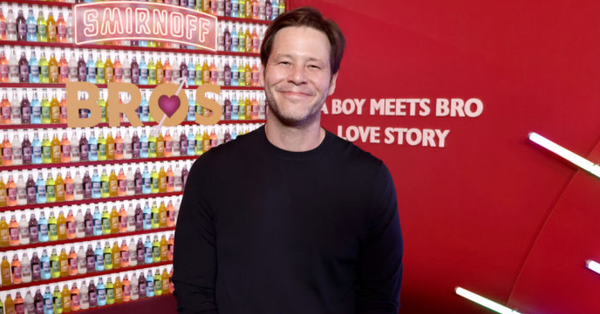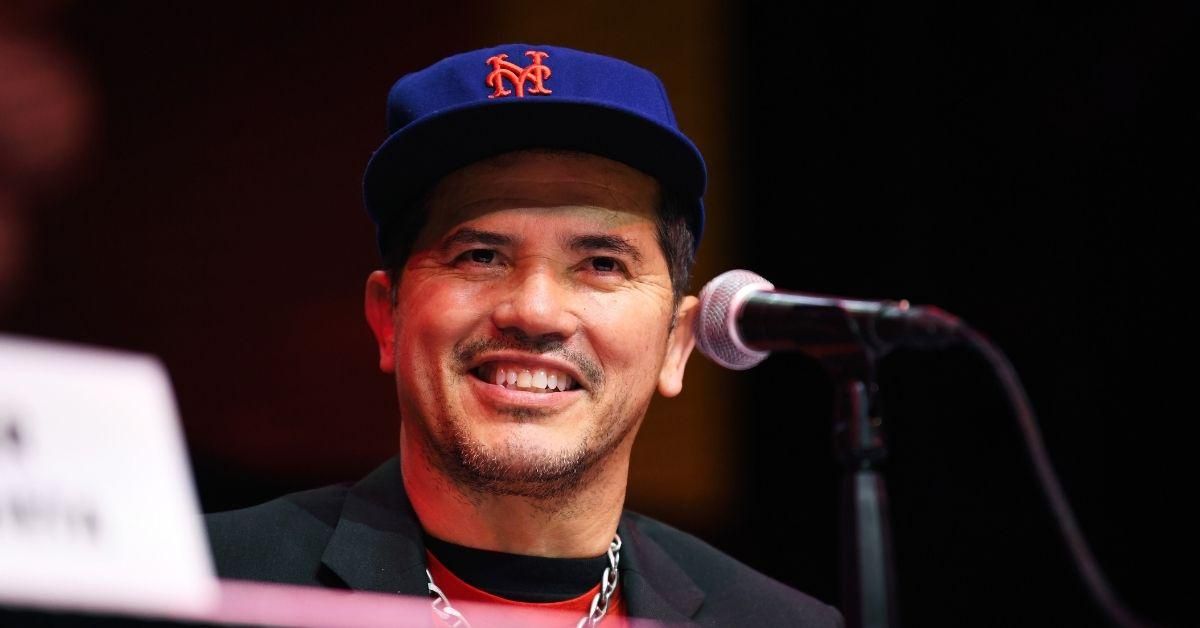Actor John Leguizamo opened up about his challenging road to a successful Hollywood career as a Latino during a Seen interview series discussion with the Academy of Motion Picture Arts and Sciences.
The Colombian-born actor who grew up in Queens, New York, told Seen host Nick Barili that he avoided the sun "for years" to stay light-skinned in an attempt to increase his chances of getting cast in roles.
John Leguizamo spoke candidly about the way colorism affects roles for actors in Hollywood while participating in the Academy\u2019s \u2018Seen\u2019 series.pic.twitter.com/KgHeC9rdgG— NowThis (@NowThis) 1643232787
The Encanto actor admitted he "benefitted from being light-skinned."
He also acknowledged the evident "colorism in Hollywood too," as well as within the Latin community.
This happens everywhere in latin america too. You see very few actors with darker skin tones in series or movies.— Christian de W.I.T.C.H. (@Christian de W.I.T.C.H.) 1643226648
Colorism is real and it\u2019s damaging— David Jones (@David Jones) 1643226807
It's true. And honestly alot of them don't advocate for darker skin colleagues to get jobs. Look at Jlo... all her romantic comedies have a white lead. She's big enough to advocate for men of other races to co-star with her. But she sticks with the status quo. That doesn't help.— WhiskeyBlu0425 (@WhiskeyBlu0425) 1643233495
"I stayed out of the sun so I could work," he said.
"I definitely would not go in the sun for years. It was a conscious thing because I could work. And all the Latinos that made it so far, a lot of them were all light-skinned."
"What happened to all the Afro-Latinos and the majority of indigenous Latinos? They don't get a shot, you know".
"So, there's a lot of things we got to deal with in Hollywood, and we got to fix, and we got to speak out and we got to speak up."
Colorism is real and hurtful. I remember I used to do this when I was younger because a girl at my school told me she didn\u2019t like how dark my skin was. My mom wracked her brain trying to figure out why her fish for a daughter didn\u2019t like being in the pool all of a sudden.— gwenplato (@gwenplato) 1643226972
You can watch his interview, below.
John Leguizamo - Episode 1 | 'SEEN’ with Nick Bariliyoutu.be
After landing the role of Luigi Mario in the 1993 video game adaptation Super Mario Bros., Leguizamo started gaining recognition and more momentum with work.
That same year, he earned praise for his performance as Benny Blanco in Carlito's Way.
Two years later, he nabbed his first Gloden Globe Award nomination for Best Actor in a Supporting Role for his performance in 1995's To Wong Foo, Thanks for Everything! Julie Newmar.
That explains Chi Chi and her foundation throughout the movie.\n\nNot a joke, they really wrote her that way to reflect exactly what he went through. To Wong Foo was liberating to him and Swayze. Drag is awesome like that— Ray NeoShitLibCorporatistShillMonkey Jones \ud83d\udc1d\ud83d\udc9b (@Ray NeoShitLibCorporatistShillMonkey Jones \ud83d\udc1d\ud83d\udc9b) 1643251281
Leguizamo became privy to the "disadvantages as a Latino" early on while he was attending NYU's Tisch School of the Arts.
"Here I am in NYU, an A student. I had fixed my accent a lot by this point," recalled the 57-year-old.
"And all the white kids in my class were going to five auditions a day. I was going to one every five months and I was like, 'Wait a minute, I'm working as hard as they are. I got better grades."
"And then I realized, 'Oh my god, I don't have the same opportunities as they have.' And I realized that it wasn't an equal playing field. It just was never going to be. And it disillusions you."
I ain't mad at him. Latinos rarely get to star in Hollywood movies and we rarely see dark-skinned Latinos star in roles, so he did what he felt what was best for him. I just wished we didn't live in a society where he felt he had to.— Xavier Robinson (@Xavier Robinson) 1643241928
The A.Frame noted that Latinos and Hispanics, who make up nearly 1 in 5 of the U.S. population, were frequent moviegoers. However, that was not reflected by what was represented on the screen.
USC's Annenberg Inclusion Initiative looked at 1,300 top-grossing films from 2007 to 2019, and the results showed:
"Seven percent of films from 2019 featured a lead/co-lead Hispanic/Latino actor, with 3.5 percent of leads/co-leads who are Hispanic/Latino across the 13 years. Hispanic/Latina girls/women only made up 1.9 percent of all leads/co-leads across 1,300 films."
That's pretty sad and messed up. This is what white supremacy ideology does though. https://variety.com/2022/film/news/john-leguizamo-sun-light-skinned-roles-1235163979/?fbclid=IwAR0S9W4wp_vu7Hz1ZUKqQhwmau1mqFagRJYatHOXnKM6VdpKzQildsAX68M\u00a0\u2026— Emmanuel "E-Man" Noisette - #RecastTChalla (@Emmanuel "E-Man" Noisette - #RecastTChalla) 1643226758
Sounds about white. But seriously. Yeah. I believe that . Hollywood is just NOW starting to stray away from casting hordes of blonde hairs/ blue eyes... Now if only Street Fighter can follow suit ... and bring back those beautiful gingers!— The Pratt (@The Pratt) 1643293794
Leguizamo added:
"So not only are we invisible, but when we are seen, it's a negative portrayal. Things are improving. I think COVID made us really look at ourselves in America."
"Black Lives Matter was a huge awakening for America, a reboot for America to look at themselves and see what's going on. I think everybody's trying to do the right thing and hire many more people of color."
"What I want to see, I want to see 20 percent of the roles in front of the camera and the crew. I'm not asking for extra. I just want what's due to us."
I don't blame @JohnLeguizamo... I blame the Industry that continues to perpetuate these ideologies.— MinisterCrush (@MinisterCrush) 1643227147
He hopes to be an inspirational role model in the future by running for Governor of the Academy.
"You have to step up and make a change and change it from within," he said. "I feel like if you've achieved a certain amount of success, it's your duty to give back."
He continued:
"You can't be an ostrich and stick your head in the sand and pretend it's not happening, not existing. I don't. I'm just too socially conscious, and I feel like I had to fight to get here, and I've earned the scars and the wounds, and I want to talk about how I had to fight to get here."
"I don't want any kid to go through what I went through. I don't want any Latin kid to go through what I went through. I don't want any white kid, Black kid, Asian kid [to go through what I went through]."
 COMICSANDS
COMICSANDS percolately
percolately georgetakei
georgetakei secondnexus
secondnexus george's picks
george's picks












